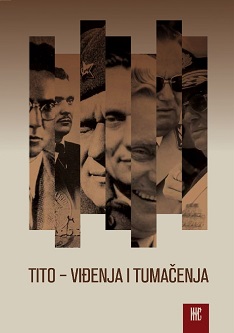„Rijetki trenuci odmora" Tito i slobodno vrijeme
„Rare Moments of Rest" Tito and Leisure
Author(s): Igor Duda
Subject(s): Political history, Social history, Social development, Economic development, Post-War period (1950 - 1989)
Published by: Institut za noviju istoriju Srbije
Keywords: Tito; working time; leisure; hobbies; everyday life; modernization;
Summary/Abstract: The time of Tito’s reign coincided with the period in which Yugoslavia – after the Second World War and during the years of economic miracles and European Golden Age - went through a series of social changes which shaped a modern society. Changes were connected with urbanization, industrialization, a growing proportion of educated and employed population, as well as democratization of practices that until recently were only available to the upper classes. Among them there was also the increasing awareness of leisure activities and the legal regulation of the length of daily, weekly and annual leave. This is the context in which a series of monographs were published in the seventies and eighties, presenting Tito’s working hours and his „rare moments of rest" to a very wide circle of readers. The structure and content of Tito’s leisure time – more precisely their presentation to the public in selected monographs, rather than their possibly different actual shape - is the main subject of this paper. The analysis shows that the structure of Tito’s working day, week and year was not in accordance with the strict separation of work and leisure imposed by the understanding of time in industrial societies. Tito occasionally rested during the long day in Belgrade, but also worked during his stay on the island of Brijuni, in other residences and on distant travels. Monographs point out that Tito did not like to leave work unfinished, that he complained about the lack of time, but also argued that because of the constant activity he had been feeling better and had no time to think about getting old. Tito's vitality was often noted, and it was certainly associated with a variety of leisure activities - walks in nature, a love of plants and animals, wine-growing, hunting, working the lathe, an interest in movies and books, playing billiards and chess, socializing and travelling. The aim of scenes from everyday life was to present Tito’s human face, and the photos of the photogenic president were very effective. It is possible that the monographs’ only goal was to build a cult of personality, but it is also certain that the attention by publishers and the media influenced the audience. There was clearly a trickle-down effect in which the presidential habits could easily be adapted to the masses and the average standard of living, producing the effect of modernization.
Book: Tito - Viđenja i tumačenja
- Page Range: 313-328
- Page Count: 16
- Publication Year: 2011
- Language: Serbian
- Content File-PDF

